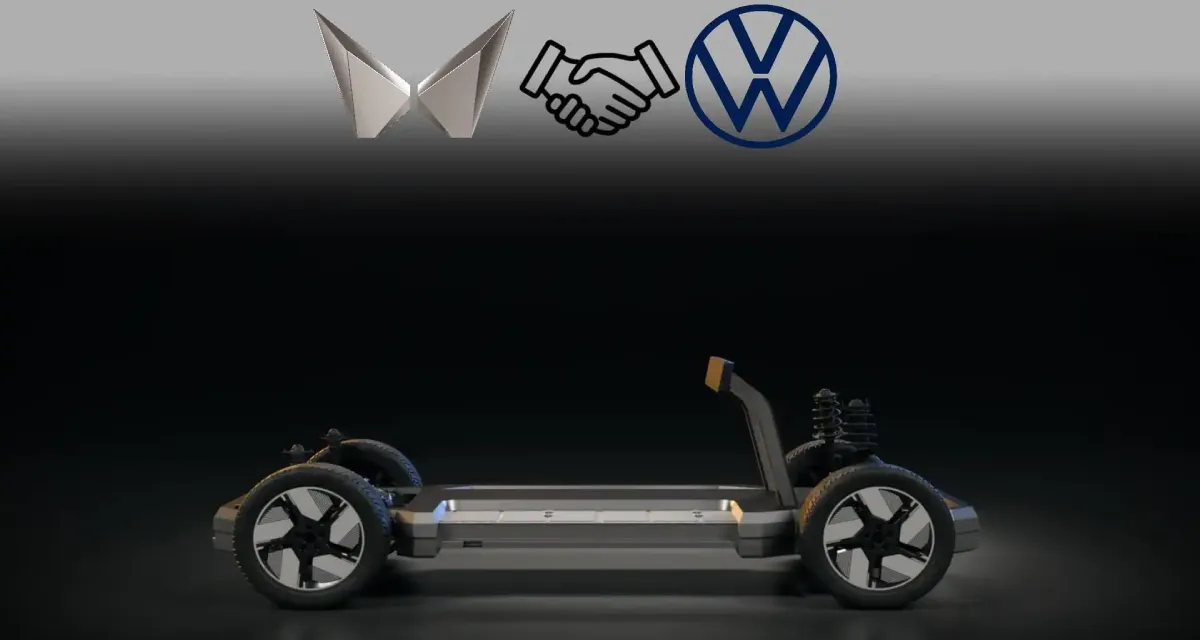

Mahindra and Volkswagen, two big names in the car world, are reportedly planning to team up for a joint venture in India. If you've been following the car industry, you might have heard the rumors of a possible collaboration between these two giants. Now, a new report from the Economic Times has shed more light on this. According to the report, Mahindra and Skoda Auto Volkswagen India Pvt Ltd (SAVWIPL), a wholly-owned subsidiary of the Volkswagen Group Germany, are in the advanced stages of discussing a 50:50 partnership.
This potential deal would mean that both companies would have an equal stake in this new venture, which would be a big move for both of them in terms of expanding their presence in the Indian and global car markets. The partnership seems to have been brewing for some time, with multiple rounds of talks—both online and face-to-face—taking place. Though neither Mahindra nor Volkswagen has officially confirmed the deal, it appears they are getting closer to making it a reality.
The focus of this joint venture is quite clear: to develop and manufacture Battery Electric Vehicles (BEVs) and some internal combustion engine (ICE) vehicles for the Indian market and exports. This partnership won’t involve Volkswagen's or Skoda's existing car models in India, meaning they will work on new projects from the ground up. This development could be announced by the end of this year, which is exciting news for car enthusiasts and industry watchers alike.
Mahindra has a history of collaborating with other carmakers. In the past, it has partnered with Renault, SsangYong (now KG Mobility), Ford, and more recently, Volkswagen itself. Their earlier agreement was centered around Volkswagen supplying electric vehicle powertrain components for Mahindra’s INGLO platform, which supports the upcoming XUV.e and BE range of electric vehicles (EVs). This history shows Mahindra’s openness to collaboration to strengthen its position in the market.
For SAVWIPL, this partnership is a strategic move to strengthen its presence in the world’s third-largest car market, where it has struggled to make a significant impact on its own despite being in India for over two decades. The Indian car market is highly competitive, and Volkswagen has faced challenges from rival brands that offer better cost efficiency. With Mahindra, Volkswagen will have the opportunity to share costs, technology, platforms, and most importantly, risks. This partnership could potentially give Volkswagen the foothold it has been seeking in India.
On the flip side, this partnership is equally advantageous for Mahindra. The Indian automaker is already a strong player in the SUV market but is looking to expand its electric vehicle portfolio. With the global shift towards electric mobility, this joint venture with Volkswagen could be a game-changer for Mahindra. It will provide them access to advanced technology and help them achieve their ambitious goal of securing a 30% market share in India’s SUV segment, especially in the electric vehicle category.
This joint venture would not just be about sharing technology; it could also lead to shared platforms for new electric SUVs that cater to both Indian and global markets. The benefits are clear: reduced costs, shared resources, and a combined effort toward innovation. Mahindra's already planned electric SUV, the BE.05, could be just the beginning of many more such projects under this new partnership.
While the details are still under wraps, it is evident that both Mahindra and Volkswagen see immense potential in this collaboration. The world is moving towards greener mobility solutions, and both companies are eager to tap into this growing market. By joining forces, Mahindra and Volkswagen can leverage their respective strengths to push forward in the electric vehicle space.
Mahindra has a strong footprint in India and an understanding of the local market, which Volkswagen can benefit from. Conversely, Volkswagen brings in a wealth of experience and technology, especially in electric vehicles, that could help Mahindra stay ahead of the curve in this rapidly evolving market.
Overall, If this joint venture does come to fruition, it could mark a significant turning point for both Mahindra and Volkswagen in the electric vehicle market. For Volkswagen, it’s a chance to gain a stronger foothold in India and build a more substantial presence. For Mahindra, it offers the technological edge and resources needed to accelerate its EV plans. Together, they could become a formidable force in the electric vehicle space, both in India and globally.
The official announcement may still be a few months away, but if everything goes as planned, we could soon see a new chapter unfold in the journey toward a greener, electric future for these two automakers.
Also Read: